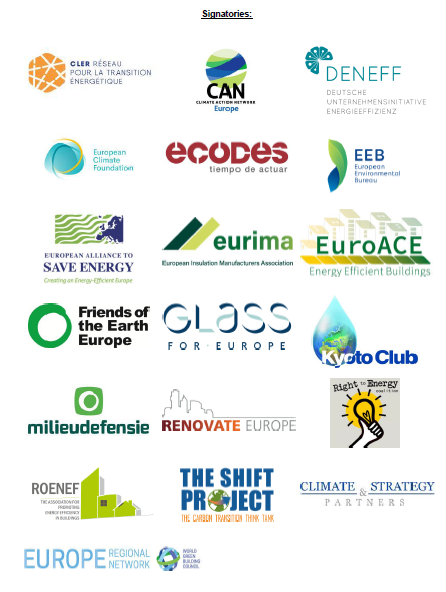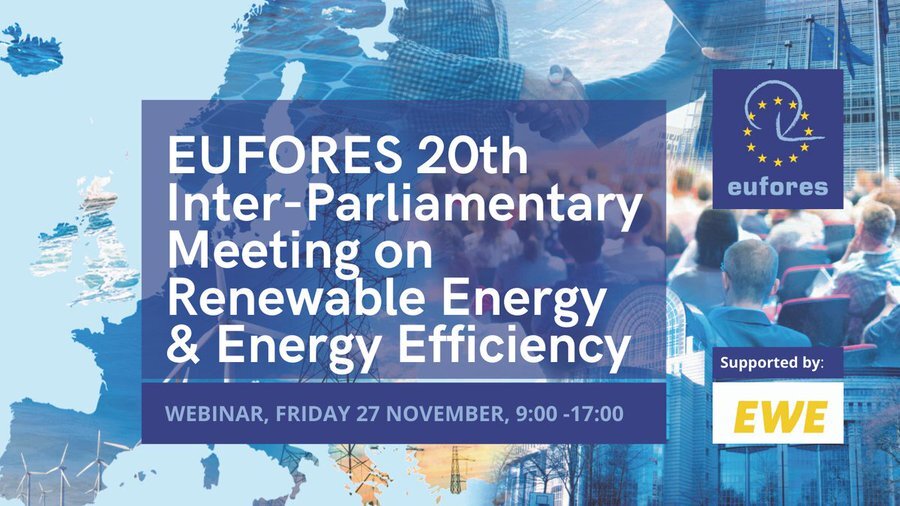Brussels, 9 September 2020
Dear Executive Vice-President Frans Timmermans,
The upcoming Strategic Communication on the Renovation Wave is crucial to deliver on the objectives of the European Green Deal and the EU Recovery Plan, since faster and deeper energy renovations are a must for a climate-neutral Europe and a clear win-win investment priority for a green and fair recovery.
We are contacting you to stress the importance of Minimum Energy Performance Standards for existing buildings in the EU legislative framework to fill the EU policy gap and make the Renovation Wave a success. Two recent studies by RAP (2020) and CE Delft (2020) show that Minimum Energy Performance Standards can stimulate the required volume and depth of renovation, and effectively make the EU building stock highly energy efficient, renewable-based, smart and flexible at the center of a decentralized energy system, which is essential for the EU to meet its climate targets and recover from the crisis.
What are Minimum Energy Performance Standards?
Minimum Energy Performance Standards require buildings to meet a predefined minimum energy performance standard, set for example in terms of an energy rating, which must be reached by a specified date or at a certain moment in the natural life of the building (sale, change in tenure). The standards can be progressively tightened over time in line with the EU’s climate and energy objectives.
What are the benefits of Building Energy Performance Standards?
Minimum Energy Performance Standards can ensure that the worst-performing buildings are upgraded and can help get the EU building stock on a trajectory towards climate neutrality. They can support the alleviation of energy poverty, by reducing energy bills for better and more comfortable homes, if accompanied with adequate social safeguards to help ensure the affordability of housing.
Minimum Energy Performance Standards are already in use worldwide, including in several EU countries, such as the Netherlands, France and Belgium. They are a proven policy solution that can help overcome the significant barriers that have hindered energy renovation to date, when introduced as part of a comprehensive renovation policy framework. These standards signal the transition and destination for the entire building stock and individual buildings, which helps align the demand for supply chains, providing impetus for business and social innovation. They can also direct the take-up of funding towards buildings most in need of energy renovation, improving the effectiveness, dispersion and absorption of existing and new programmes. If done right with sufficient lead times, the standards allow the market to mobilise itself and properly plan for the transformation.
Minimum Energy Performance Standards now need to be included in EU legislation
It is for all these reasons that earlier this year the Industry Committee of the European Parliament called on the Commission to “develop a legislative framework for the introduction of minimum energy performance standards for existing buildings that are progressively tightened over time in line with the 2050 objective”.
Any set of measures aiming at tripling the renovation rate and reaching a highly energy-efficient and decarbonized building stock by 2050 must include Minimum Energy Performance Standards to be successful. We therefore expect the European Commission to put forward legislative proposals in the immediate future to introduce Minimum Energy Performance Standards, making use of the available funding and technical assistance to support their introduction. There are different options how this can be done at the EU-level, e.g. by strengthening relevant articles of existing energy and building legislation, proposing incremental targets across the whole building stock, or by setting an obligation based on results.
As a flagship of the European Green Deal and the EU Recovery Plan, we look to you to ensure that the Renovation Wave includes an action plan with new measures including Minimum Energy Performance Standards to ensure delivery of the Renovation Wave’s ambitions and to provide tangible benefits to EU citizens.

Download the letter here






